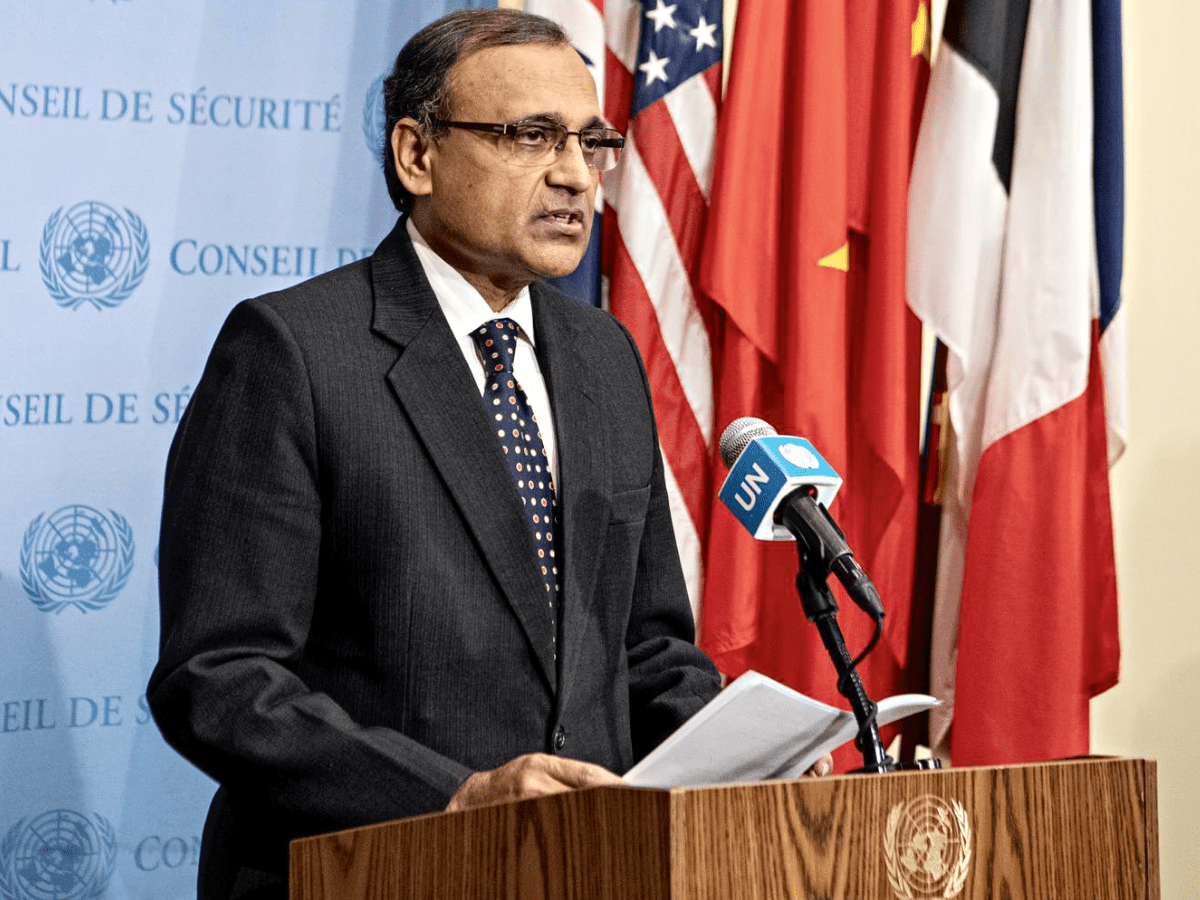
United Nations: As the UN General Assembly adopted a resolution on Tuesday to proclaim March 15 as International Day to Combat Islamophobia, India expressed concern over phobia against one religion being elevated to the level of an international day, saying there are growing contemporary forms of religiophobia, especially anti-Hindu, anti-Buddhist and anti-Sikh phobias.
The 193-member UN General Assembly adopted a resolution, introduced by Pakistan’s ambassador Munir Akram under agenda item Culture of peace, to proclaim March 15 as the International Day to Combat Islamophobia.
The resolution, introduced by the Organisation of Islamic Cooperation (OIC), was co-sponsored by Afghanistan, Bangladesh, China, Egypt, Indonesia, Iran, Iraq, Jordan, Kazakhstan, Kuwait, Kyrgyzstan, Lebanon, Libya, Malaysia, Maldives, Mali, Pakistan, Qatar, Saudi Arabia, Turkey, Turkmenistan, Uganda, United Arab Emirates, Uzbekistan, and Yemen.
Reacting to the adoption of the resolution, India’s Permanent Representative to the UN Ambassador T S Tirumurti said in the UN General Assembly that India hopes the resolution adopted “does not set a precedent which will lead to multiple resolutions on phobias based on selective religions and divide the United Nations into religious camps.
Hinduism has more than 1.2 billion followers, Buddhism more than 535 million, and Sikhism more than 30 million spread out around the world. It is time that we acknowledged the prevalence of religiophobia, rather than single out just one, he said.
It is important that the United Nations remains above such religious matters which may seek to divide us rather than bring us together on one platform of peace and harmony and treat the World as One Family, he said.
Following the adoption of the draft resolution, Tirumurti said that while India condemns all acts motivated by antisemitism, Christianophobia, or Islamophobia, such phobias are not restricted to Abrahamic religions only.
In fact, there is clear evidence that over decades such religiophobias have, in fact, affected the followers of non-Abrahamic religions as well. This has contributed to the emergence of contemporary forms of religiophobia, especially anti-Hindu, anti-Buddhist, and anti-Sikh phobias, he said.
He noted that the Member States should not forget that in 2019, August 22 has already been proclaimed as the International Day commemorating the victims of acts of violence based on religion or belief, which is fully inclusive in nature.
We even have an International Day of Tolerance observed on 16 November. We are not convinced that we need to elevate phobia against one religion to the level of an international day, he said.
Tirumurti asserted that these contemporary forms of religiophobia can be witnessed in the increase in attacks on religious places of worship like gurudwaras, monasteries and temples or in the spreading of hatred and disinformation against non-Abrahamic religions in many countries.
He cited that several examples of these abound, including the destruction of the Bamyan Buddhas in Afghanistan by the Taliban, violation of gurudwara premises, massacre of Sikh pilgrims in gurudwara, attack on temples, glorification of breaking of idols in temples.
He said these contribute to the rise of contemporary forms of religiophobia against non-Abrahamic religions.
It is in this context that we are concerned about elevating the phobia against one religion to the level of an international day, to the exclusion of all the others.
Celebration of a religion is one thing but to commemorate the combatting of hatred against one religion is quite another. In fact, this resolution may well end up downplaying the seriousness of phobias against all other religions, Tirumurti said in his statement after the adoption of the resolution.
He said India is proud that pluralism is at the core of its existence.
We firmly believe in equal protection and promotion of all religions and faith. It is, therefore, unfortunate that the word pluralism’ finds no mention in the resolution and the sponsors have not found it fit to take on board our amendments to include the word pluralism in the text for reasons best known to them.
Tirumurti said that as a pluralistic and democratic country that is home to almost all religions of the world, India has always welcomed, over the centuries, those persecuted around the world for their faith or belief.
“They have always found in India a safe haven shorn of persecution or discrimination. This is true whether they were Zoroastrians or Buddhists or Jews or people of any other faith, he said.
Tirumurti expressed deep concern over the rise in instances of discrimination, intolerance, and violence directed against members of many religious communities in various parts of the world.
He emphasised that it is with deep concern that India views the growing manifestation of intolerance, discrimination, or violence against followers of religions, including rising sectarian violence in some countries.
France’s Permanent Representative to the UN Ambassador Nicolas de Riviere, speaking after Tirumurti, said that by creating an international day to combat Islamophobia, the resolution does not respond to the concern that we all share to fight against all forms of discrimination.
Because they create division within the fight against religious intolerance by only selecting one religion to the exclusion of others without reference to the freedom to believe or to not believe, he said.
He said society is made up of diversity, with individuals practicing a variety of religions or not practicing any at all.
Must we expect the creation of days dedicated to each religion, to each degree of belief or non-belief? There may not be enough days in the year to satisfy all these demands, de Riviere said.
The French envoy said the text of the resolution that is submitted on Tuesday did raise a number of difficulties with regard to the determination to fight against discrimination based on religion or belief.
The term Islamophobia does not have any agreed definition in international law, contrary to the freedom of religion or belief, he said, adding that the resolution is very “unsatisfactory” as it currently stands and none of the proposals mooted by France were taken into consideration.



